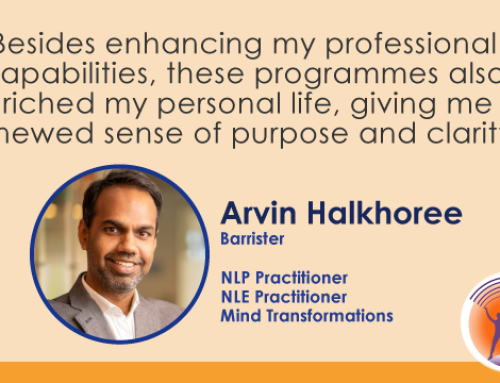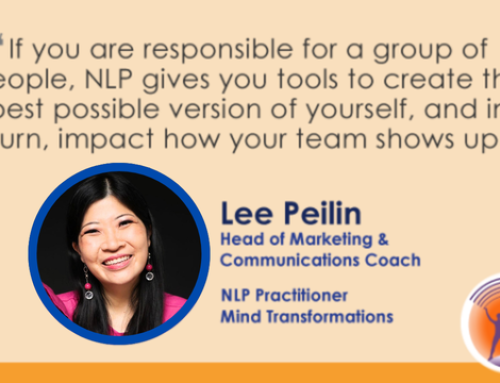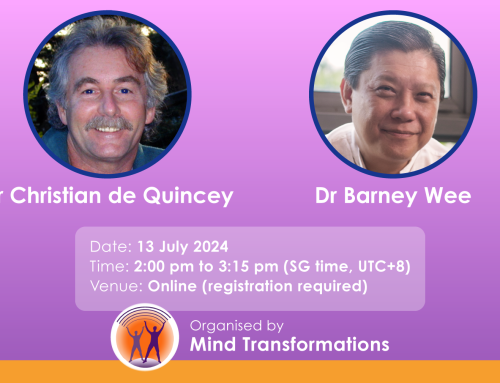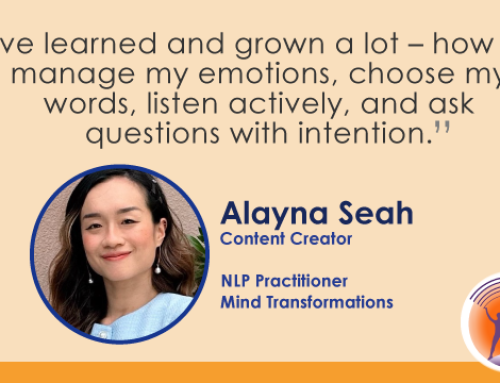Very often, we find ourselves limited by the belief that if we are not an authority in a certain subject matter, we are not qualified to teach or lead.
For example, if one is not in a relationship or marriage, does it mean that she cannot be a great relationship coach or marriage counsellor? Or does one really have to go through dire straits in her life in order to be an inspiration or motivation for others?
“Am I good enough?”
Coming face to face with self-doubt, the easy way is to just walk away from the respective task and continue doing what we are comfortable with, instead of risking the chance of making mistakes and appearing stupid.
But there is a subconscious intention connected to this self-doubt: it is our inherent desire to do good. We want to be sure that the words we are putting out there will really make a positive impact.
Why qualifications are not really important for influencers
While having experience, academic qualifications and authority would easily establish an early credibility for influence, what most people might not realise is that authenticity can create greater, more sustainable impact than any of the aforementioned.
When we are clear about our intentions, we help people feel at ease that they are not being manipulated, and they are still in control of their decisions.
By putting ourselves in a more or less equal position with them, they can see how we are very much alike, and that we’re not some godly guru who knows everything.
When we are comfortable in talking about our strengths and our weaknesses, we nurture a safe and supportive space that gives them the permission to do the same, to fully express themselves authentically.
At the end of the day, when people are able to see beyond our status, accolades and grand titles, we no longer require a qualification to influence. It is our good intentions, our way of being and living that will produce positive, sustainable influence.
But being authentic and sincere is not sufficient to be a good influencer
When we become an influencer, people will be waiting to see if we have the capacity to stand up to the test of adversities, especially in the areas in which we are leading.
This is where the study of Adversity Quotient (AQ) comes in – the work of Dr. Paul Stoltz which measures and develops a person’s health and energy, their ability to cope with adversities in life, through their way of handling stress, taking risks, coping with change or persevering through difficulties.
Notice again here that having impressive qualifications does not translate into having a high AQ.
How to develop the AQ of an influencer
– Take ownership
How much do you believe in what you say?
Taking ownership is the test of conviction. It is the willingness to be responsible for what we say and the results we create, rather than blaming others or taking a victim’s position.
– Be open to feedback
Are you open to admit that you were wrong?
Usually, in the position of the influencer, our fixation on experiences, status and our ego are the things that block us from receiving feedback.
It is only when we are willing to see through the eyes of other people that we are able to know what is not working out for us, and then learn to let that go.
What seems to be working against us now may actually be working for us, and what seems to be working now may be working against us in the longer term.
– Be clear about the purpose and meaning behind what you pursue
If all odds are stacked against you, will you still continue doing what you do? Why?
In Viktor Frankl’s book, Man’s Search for Meaning, his most valuable contribution to mankind is the why behind the way we value or strive for something. From his experience in the Nazi camp, he learned that all aspects of life can be given a meaning, including suffering. He learned that what motivates us the most, what drives our lives is not pleasure (Freud), nor power (Adler), but meaning. As Friedrich Nietzsche simply and beautifully put it, “He who has a why to live for, can bear almost anything.”
When the rubber meets the road, the difference between whether we back away or stay on our track is a why.
The world is always in need of influencers
I hope that at this point, you understand that your lack of qualifications does not stop you from becoming an influencer.
What’s more important is the intention behind what you do, and why you will continue doing it when all odds are against you.
So what are you waiting for?
We have a new workshop Influence Without Authority.
It is a 3-day programme on how to move people from resistance to commitment. As you may realise, best intentions and best practices are not useful until you get buy-in from your stakeholders. This workshop is about increasing your bandwidth to influence, and developing your “currency” to thrive in environments where you don’t need to be the loudest voice to make an impact.
You can put your name on the Priority List, and you’ll be the first to receive the news when we’re open for enrollment.
[inf_infusionsoft_inline optin_id=”optin_2″]






